Technology


6 min

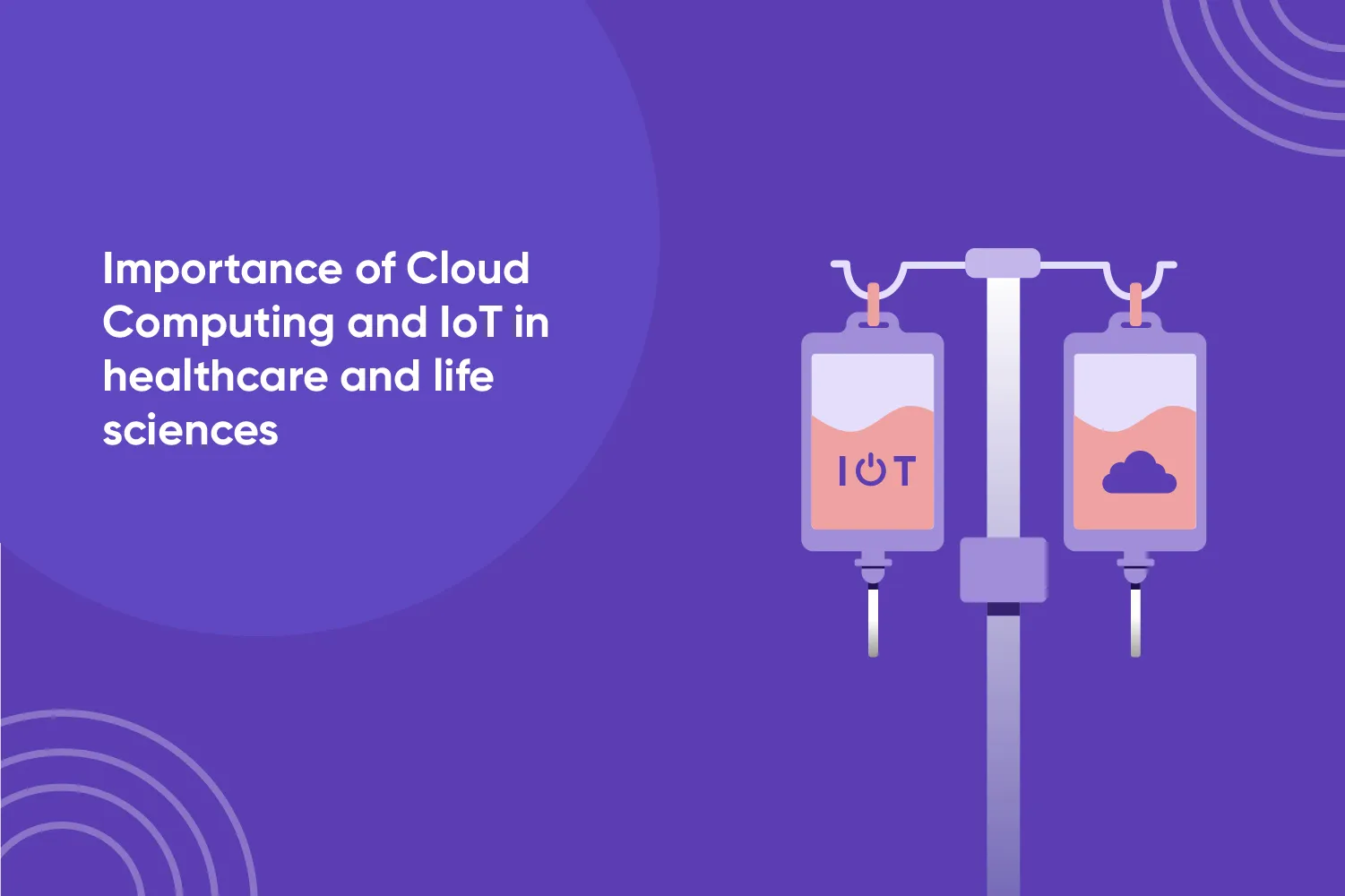
Integrating cloud computing and IoT in healthcare and life sciences has brought significant benefits to patients and healthcare providers. The improved efficiency, accessibility, and cost-effectiveness of these technologies have transformed how healthcare is delivered and opened up new opportunities for innovation in the healthcare industry.

By Digvijay Singh Tomar
25 Jun, 2022
Covid-19! Do not even think for a moment that I'm selling this word; instead, just mentioning it so that this blog post becomes worth reading for you.
This pandemic has shown the world and human civilization what could go wrong if healthcare systems are not supported the way they should be. And, yes, it takes a billion dollars, but things can be on our side if the right technologies and strategies are implemented.
For example , the use of cloud computing in healthcare. Before the pandemic, industries, governments, and tech giants were a little skeptical about pushing the IoT and cloud computing, but since the beginning of the Covid-19, their use has been skyrocketing.
The healthcare systems are now availing the perks of an increase in cloud- based systems that improve privacy, lower expenses, and provide better patient care via collaboration and remote operations.
According to a recent survey, cloud technology is on its way to becoming the most wanted technology ever, and its market will reach $71,730.64 million by 2027 , with a CAGR of 14.12 % between 2022 and 2027.
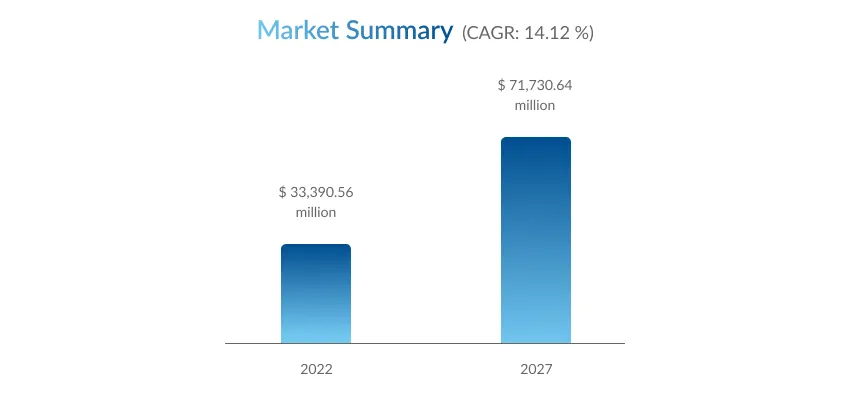
Thus, it is a clear indication that healthcare organizations are following the lead in accepting new technologies and spending more on tech growth so that it's easy to save people's lives and help them save money.
This article is about cloud computing and IoT and their worldwide importance to the healthcare system. You'll also learn how it is helpful for healthcare institutions.
Let's jump in to learn what cloud computing is.
But before that, scroll down and explore what you're exposed to read:
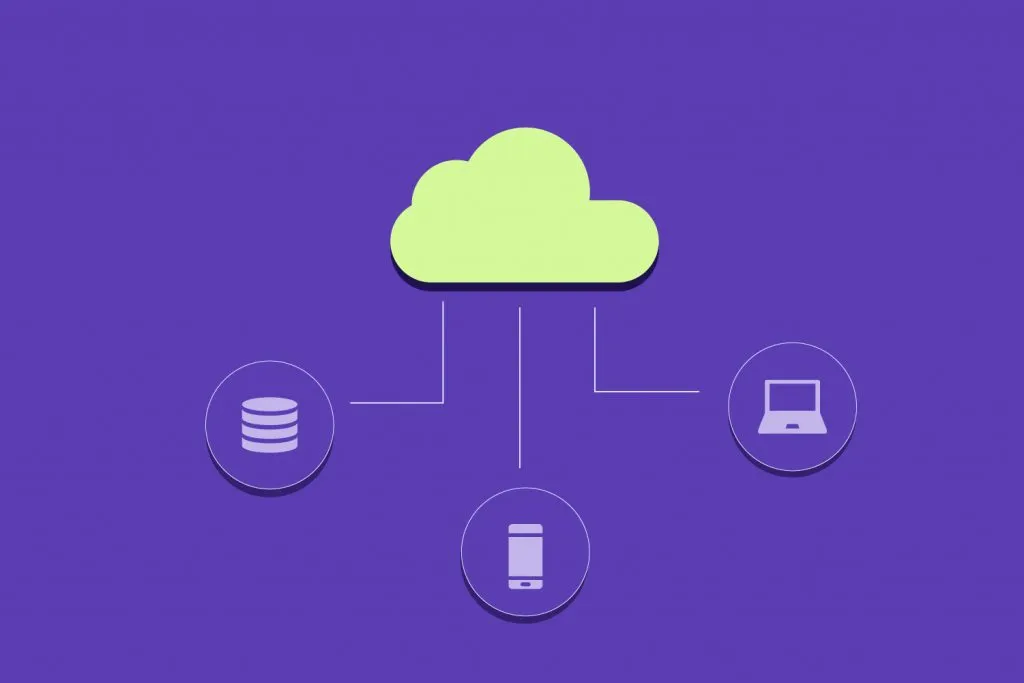
The simple and easy-to-understand definition of cloud computing is “using an on-the-go computer/servers to fulfill all your requirements/business needs.”
Instead of using many computer systems and hardware for streaming videos, storing and accessing data, releasing software, processing information, etc., Computer scientists established data centers.
These data centers allow all other internet access devices to get things done more efficiently and quickly.
Have you ever wondered about connecting all electronics to the Internet, operating it right through your fingertips, or saying something similar to -
Hey Alexa, play my favorite song!
Well! The Internet of things (IoT) is for that only. Sounds familiar, right?
IoT is the network of physical objects. These objects are things embedded with sensors, software, and other technologies for connecting and exchanging data/info with other electronic devices and systems with the help of IOT app development services.
These electronic devices range from ordinary household objects to extremely sophisticated industrial tools.
Today, more than 7 billion devices are working on IoT technology. Experts say this number will reach 10 billion by 2020 and 22 billion by 2025.
Also Read: Roadmap to Success: Developing a Healthcare App with Expert Guidance
A vast amount of data is roaming around in the healthcare industry, and it needs to be tackled efficiently. Healthcare companies' main challenge is securing, accessing, and optimizing this data.
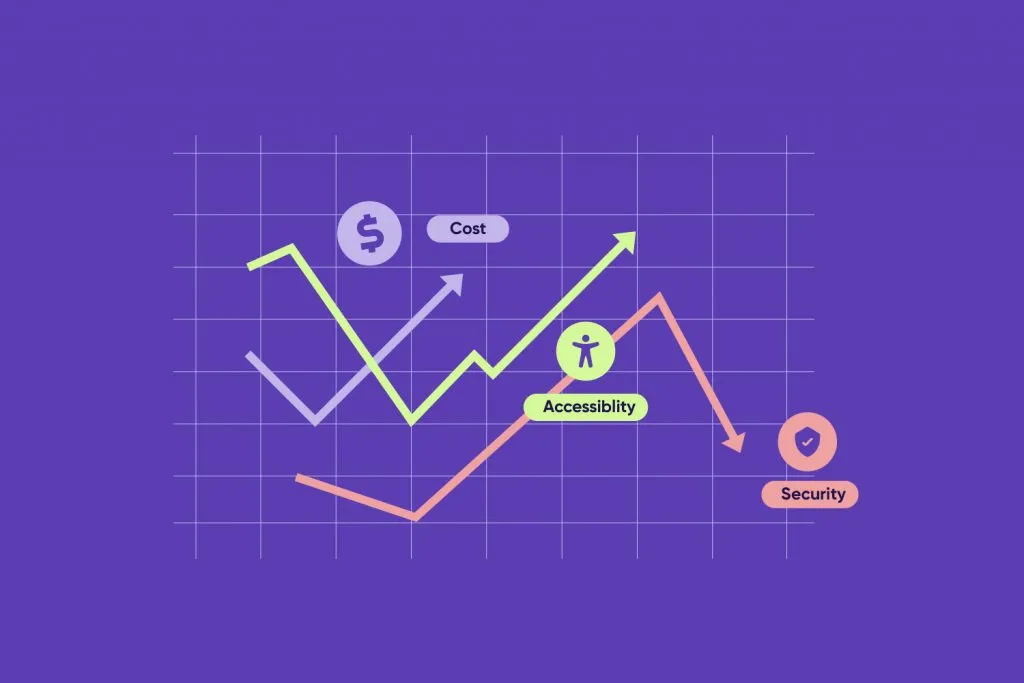
Though there are other concerns too -
Medical organizations like Drug Houses, Hospitals, pharmacies, Forensic labs, Clinics, Medical schools, and Labs store and process a lot of data from various electronic devices, mainly computers, mobile phones, and other data- generating electronics such as MRI machines, etc. And to provide constant maintenance and value services don't come cheap.
Cloud computing apps/software applications can take the load off healthcare and offer much-needed space to scale up.
Today, a few cloud-computing service providers, such as - AWS and Azure, offer over 160 services in cloud computing. These models are famous for the pay-as- you-go model, giving organizations the vast flexibility they require.
It makes all operations more accessible and saves the healthcare companies/organizations significant funds helps reduce costs involved in providing services, enhancing equipment for diagnosis, etc.
A recent report from Thomson Reuters shows a wastage of $6000-850 billion annually in the US healthcare system alone. The credit goes to - administrative inefficiency and unnecessary treatments. These are the problems that cloud computing technology can quickly solve.
Healthcare is a susceptible industry involving a very complex system.
For instance you know well that one or more physician or team works on one patient. Providing up-to-date information/patient data with no additional communication setup is complicated and requires enormous resources.
With cloud services, you have the feasibility to update data in real time. Moreover, each specialist can access and update it if allowed permission.
Cloud computing dramatically makes things easier for medical specialists and patients. It will help patients view and monitor changes in their prescriptions and online appointments without thinking about going to the nearby hospital.
Most of the time, hardware resources fail to secure the data since there are breakdowns and organizations can lose data with no chance to restore it. And when you lose data like lab tests, medical history, diagnostics, billing records, and more, the organization will be irreparably damaged, and people will avoid connecting with your health initiatives.
But with cloud-based services, the service provider assures you of backups because servers are located at multiple geographical locations, providing utmost security for data, even in natural disasters or similar events. And it is the primary reason cloud services providers emphasize the advantages of cloud computing in healthcare.
The cloud offers better security than on-premises systems. It's loaded with different security metrics like IDS/IPS, firewalls, end-to-end encryption, etc. Implementing these things will keep healthcare data safe.
Any technology implementation without risk Cloud computing has implications but has more benefits than drawbacks. And the healthcare industry needs support to process the gazillions of data annually.
Thus, cloud computing in healthcare concerns the application and use of remote servers (via the Internet) to help healthcare institutions store, handle, and process medical information accurately and efficiently.
In general, IT experts maintain information storage servers. And since Cloud storage is convenient for healthcare professionals and medical institutions, online servers play a crucial role in securely storing millions of GB of data.
Medical companies embrace cloud-based solutions to securely store patient records with the EMR (Electronic Medical Records) Mandate in the market.
Moreover, healthcare organizations with no plans to implement cloud-based solutions or restoration points also adopted cloud-based services to deal with the vast amount of data.
While a few in the tech industry remain skeptical about privacy concerns for the ultra-sensitive information available to internet users using cloud computing services technology, it has many advantages and potential benefits that are hard to ignore — hence the escalating adoption rate.
The benefits of adopting the cloud technology are -
Sharing is caring is also true for healthcare. It's about caring for the patients. With cloud computing, data sharing facilitates collaboration. And it's now easier to share real-time information confidentially among healthcare parties.
Not only can healthcare institutions share data on medical records, but they can also remotely access it anytime, anywhere. Cloud has emerged as the perfect companion for healthcare professionals.
For an organization, security is the primary concern, and healthcare data has to be remained confidential. Gigabytes of data are always prone to malicious actors, resulting in various security breaches. But there's no need to worry about security issues if you're opting for the cloud network since it ensures the safety and has specific security tools to inform you about suspicious attempts.
Could service providers like AWS and Azure act as data repository houses and are more cautious in complying with the privacy protocols such as HIPAA and GDPR by providing additional safeguards like network fireball, customer-controlled encryption, and more. It makes the clout technology the safest and most reliable option for data-related needs in healthcare and institutions related to life sciences.
Healthcare organizations shifting to cloud technology will be very cost- efficient since it can hold vast information at meager investments. The basic principle upon which cloud computing works is - the pay-as-you-go and subscription model. That is, pay only for those services that you avail.
The rate at which technology solves problems for you matters. With minimal interventions, cloud-based tools can update and upgrade their features rapidly. You can have real-time relevant updates when needed.
One of the many features of cloud computing is speed and faster access to information. And in healthcare, it paves a way to overcome the stumbling blocks that the patients and industry stakeholders face. Cloud computing is helping enormously in modifying clinical research, clinical trial management, and knowledge sharing at par.
Healthcare organizations are known for their dynamic operations. Cloud computing provides hassle-free flexibility and scalability, which helps in ultimate decision-making. Healthcare organizations can use cloud technology to regulate their data storage needs.
Thus, shifting to the cloud reduces risks and minimizes the chances of downtime strengthens security practices, prevents data leaks, and improves data handling.
IoT is all about connecting electronic and internet-accessible devices to provide patient care via real-time health monitoring by allowing access to patients' health data.
The data generated through electronic-medical devices (like glucometer, heart rate monitoring cuffs, etc.) is a goldmine for healthcare stakeholders and help improve patients' health and experiences while creating revenue opportunities and improving healthcare operations.
Let's learn the use of IoT in the healthcare system.
You can build IoT in two ways:
IoT is completely changing our lifestyle by providing people a quick response to their problems using gadgets such as Wearables. Wearable devices like fitness bands and other wirelessly connected devices offer patients access to modified attention.
You can tune the IoT devices to remind patients about their exercise check, heartbeat rate, calorie count, blood pressure variations, and more. It helps healthcare professionals to provide treatment in time.
Hence, IoT is helping to increase our lifespan.
Different IoT equipment such as home monitoring and other wearable devices make it easy for physicians to handle any medical situation of their patients and provide the best care. On the other hand, it has put specialists on alert to be more careful and contact their patients to keep tracking their health and health services.
Merely monitoring patients' health is not the only application of IoT; instead, it's finding its use in many other areas. IoT devices integrated with sensors can track the real-time locations of medical equipment like oxygen pumps, wheelchairs, nebulizers, defibrillators, and others.
IoT is also helping to reduce the spread of infections in hospitals that majorly concerns the patients. IoT-enabled devices are also helping in asset management such as environmental monitoring, pharmacy inventory control, checking refrigerator temperature and its condition, humidity level in the ER, and temperature control for various other types of equipment.
Health insurance is a significant concern for people in the United States, EU, India, Canada, UK, Australia, and other countries.
IoT-enabled electronic devices can intelligently help insurance companies influence data captured through various health monitoring devices in case of underwriting and claims operations. As a result, health insurance providers can quickly detect fraud claims and identify prospects for copywriting.
It also helps customers with appropriate visibility into deciding and outcomes of the processes involved.
IoT makes it possible to supervise real-time reporting, helping save people's lives in medical emergencies like asthma attacks, heart failures, etc.
Healthcare mobility solutions can efficiently operate with IoT to maintain patient care workflow, providing interoperability, machine-to-machine communication, and data movement and information exchange. It's all making healthcare delivery more productive.
With IoT-enabled devices and different connectivity software, hospital personnel can spot early signs of illness in patients.
It's easy to provide real-time support if you can have relevant data in a short time. IoT can do it, hence eliminating the need for its storage. IoT will revolutionize the healthcare world by speeding up and allowing doctors to provide accurate and in-time consultations for their patients.
Many people lose their lives because of the lack of in-time reporting related to critical life-threatening circumstances. IoT lets people know their medical condition in advance and helps them decide whether it's time to make an appointment with a doctor!
Below is the list of several companies helping hospitals and other healthcare organizations to streamline their operations and improve patient care using the cloud technology:
It is a hybrid cloud data services company helping healthcare management platforms. It delivers clinical data in real-time to accelerate operations faster and enhance overall efficiency through the quicker backup, reduced EHR latency, restoration, and easy ways of storing data.
This cloud-based IT solution helps healthcare institutions, including clinical, financial, accounting, nursing, and many others.
This company is a leader in pharmaceutical and biotech products. It has been utilizing cloud services since 2016. And it’s been in the spotlight in developing a COVID-19 vaccine in partnership with BioNTech.
The list is long!! But these are a few world-famous examples for your reference.
IoT, as well as cloud computing, is playing a crucial role in making people's lives easy. And helping the world healthcare system stand up to perform its duty - care for the people!!
By introducing IoT and cloud in the healthcare app development , the treatment level would be best, cost-efficient, and convenient for patients and doctors.
What Is a Push Notification and Why It Matters for Your App Strategy
By Dhruv Joshi
5 min read
Top React Native Development Companies to Build Scalable Apps
By Dhruv Joshi
5 min read
How Wearable Technology Is Driving Real-Time Data Experiences in Mobile Apps
By Sannidhya Sharma
5 min read
How to Use Augmented Reality in Retail to Boost Customer Engagement and Sales
By Sannidhya Sharma
5 min read

Technology


5 min
Wearable technology is reshaping mobile apps with real-time insights, enabling smart alerts, fitness coaching, health monitoring, and more. From smart rings to AR glasses, explore how these evolving devices are creating seamless, personalized experiences across various industries and everyday life.


Technology


5 min
Augmented reality in retail helps brands drive sales and reduce returns by transforming how customers discover, try, and buy products. This blog is your guide to using AR strategically, from choosing the right use cases to launching cost-effective AR experiences that delight customers and differentiate your brand.


Technology


5 min
The demand for high-quality video streaming apps has exploded, and it's not just Netflix leading the charge anymore. From niche platforms to corporate media ventures, businesses everywhere are realizing the massive opportunity in OTT app development to launch their own video streaming application.

Feeling lost!! Book a slot and get answers to all your industry-relevant doubts